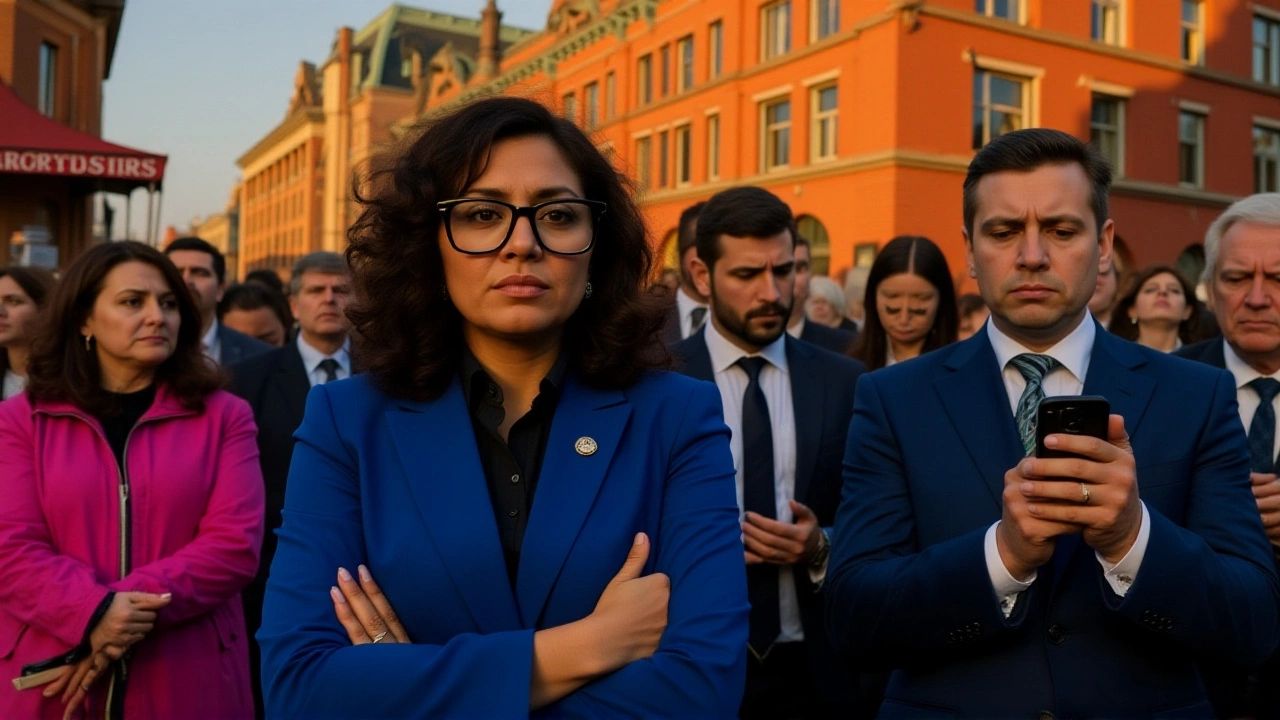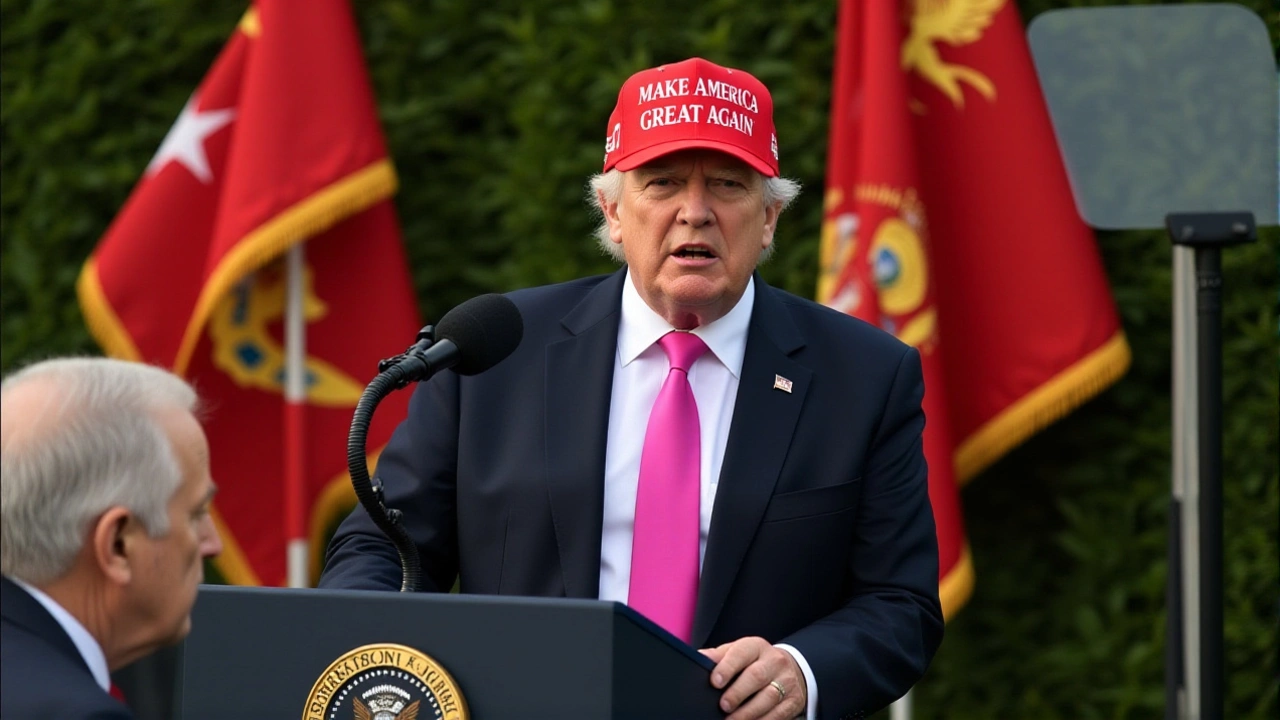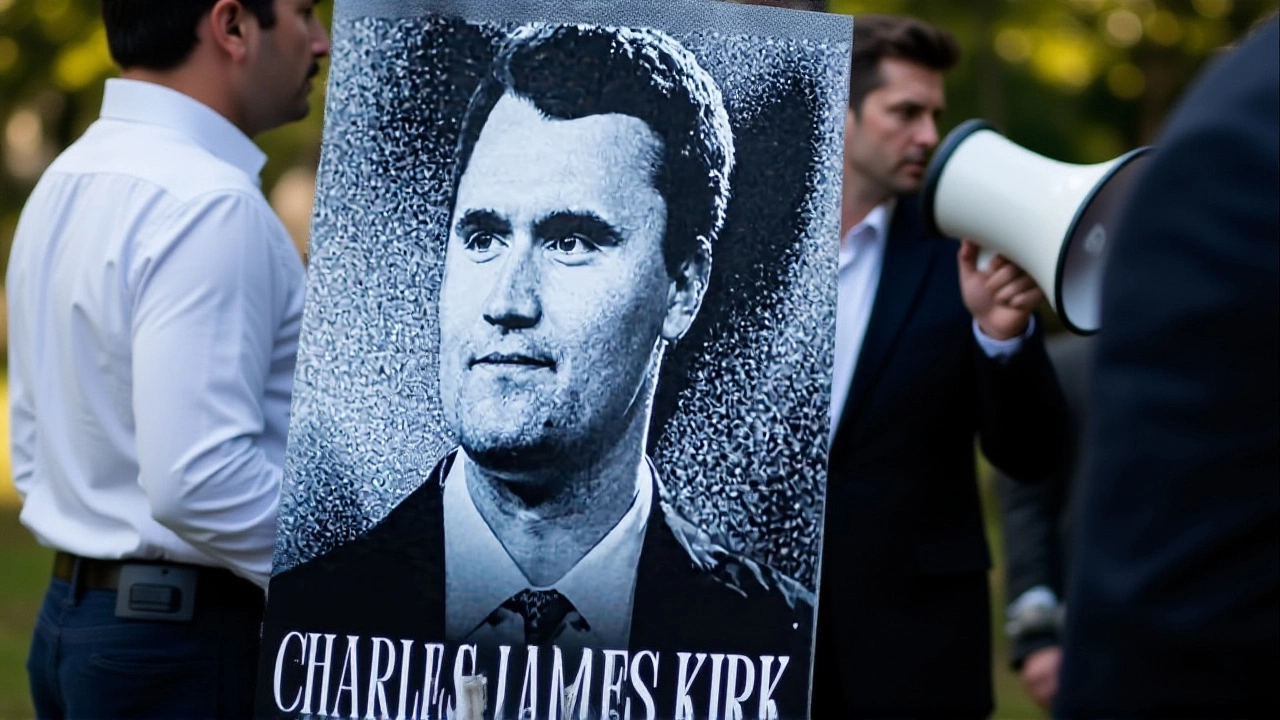When Charlie Kirk, founder and chairman of Turning Point USA was murdered earlier this month, the political fallout rippled far beyond campus rallies and talk‑radio shows. Less than two weeks later, on October 15, 2025, the St. Louis County Council gathered in its chambers at Clayton, Missouri, to vote on a resolution that would "honor the life and legacy" of the slain activist. The motion, introduced by Republican Mark Harder of District 6, was defeated 5‑2, exposing a sharp partisan divide in a county of nearly one million residents.
Background on the Proposed Resolution
The resolution, read aloud during the meeting, praised Kirk's "commitment to free speech, personal responsibility, and limited government." It was drafted after a wave of national headlines highlighted Kirk’s influence on campus politics and his role in the broader conservative movement. Supporters argued that honoring him would underscore the county’s dedication to protecting constitutional rights. Critics, however, warned that elevating a figure whose rhetoric often polarized communities would run counter to St. Louis County’s stated values of unity and inclusivity.
The Council Meeting and Vote
The session, officially catalogued as a St. Louis County Council meetingCounty Council Chambers, 41 South Central Avenue, lasted roughly two hours and drew a crowd of more than 200 residents. After a heated debate, the vote broke down along predictable party lines: the four Democratic councilors—Lisa Clancy of District 5, Gretchen Bangert of District 2, and two unnamed Democrats—joined Republican Dennis Hancock, who voted against the measure. Harder and the lone other Republican councilor cast the two affirmative votes.
Arguments from Council Members
Democratic Councilwoman Lisa Clancy opened her remarks by denouncing all forms of violence, then pivoted to a broader gun‑safety narrative. She cited a recent school shooting at Evergreen High School in Jefferson County, Colorado—where a student fired 20 rounds in nine minutes, injuring two classmates before taking his own life—to argue that "obviously past time for some common‑sense gun safety laws." Clancy added, "His death should be mourned, but his ideas as he expressed them do not deserve the honor of this council."
Councilwoman Gretchen Bangert echoed the condemnation of violence, stressing that the county’s recognitions must reflect "values of unity, respect and inclusivity of all who call St. Louis County home." She warned that honoring a polarizing figure could alienate residents who feel marginalized by his public statements.
Republican Mark Harder expressed disappointment but remained defiant, noting, "I was pleased to see how many people showed up tonight, both for and against the resolution. It shows that freedom of speech is still very much alive—a small victory amid what I call a battle to protect that freedom." He signaled that future efforts to recognize Kirk would continue, though perhaps through different venues.

Political and Community Reactions
The vote quickly became a flashpoint for statewide conservatives, who seized on the council's rejection as evidence of a liberal “censorship” agenda. Social‑media posts from Turning Point USA chapters framed the decision as “a direct attack on free expression.” Meanwhile, local advocacy groups for gun‑safety and civil rights hailed the outcome, arguing it set a precedent that public honors must align with community standards, not partisan agendas.
Residents in the packed council chambers reported a tense atmosphere, with cheers for Harder’s supporters punctuated by chants of “No hate!” from opponents. The meeting’s live stream drew over 12,000 concurrent viewers, underscoring how a county‑level vote can capture national attention when the subject touches on hot‑button issues like free speech and gun violence.
Implications for St. Louis County Governance
St. Louis County, home to 996,526 people according to the 2020 Census, has historically prided itself on a bipartisan approach to local legislation. The 5‑2 split may signal an emerging fissure, especially as national partisan battles increasingly seep into municipal arenas. Legal scholars note that while councils are free to pass honorary resolutions, they risk public‑policy backlash if the honoree’s ideology conflicts with the jurisdiction’s stated values.
Going forward, the council may face pressure to establish clearer guidelines for future resolutions, possibly requiring a pre‑vote impact assessment or community consultation. Such measures could help avoid another showdown that pits constitutional principles against community cohesion.

What Comes Next?
Harder indicated that advocacy groups will continue to lobby for a revised resolution, perhaps one that frames Kirk’s legacy solely around “free‑speech advocacy” without broader commendations. The council’s calendar shows a public hearing slated for December 3, 2025, where residents can voice opinions on any revised proposal. Whether the county decides to revisit the issue or let it fade remains uncertain, but the debate has already reignited broader conversations about how local governments recognize polarizing public figures.
- Key Fact: Vote tally was 5‑2, with all four Democrats opposing.
- Date of vote: October 15, 2025, at 7:30 p.m. CST.
- Location: County Council Chambers, 41 South Central Avenue, Clayton, MO.
- Resolution sponsor: Councilman Mark Harder, District 6.
- Opposition leaders: Councilwomen Lisa Clancy (Dist 5) and Gretchen Bangert (Dist 2).
Frequently Asked Questions
Why did the council reject a resolution honoring Charlie Kirk?
Council members argued that Kirk’s public statements often conflicted with St. Louis County’s commitment to unity, respect and inclusivity. While they condemned his murder, they felt a formal honor would send the wrong message about the values the county seeks to uphold.
Which council members voted for the resolution?
Republican Councilman Mark Harder and one unnamed Republican colleague cast the two affirmative votes. All four Democrats and Republican Dennis Hancock voted against it.
How did the public react during the council meeting?
More than 200 residents packed the council chambers, and the live stream attracted over 12,000 viewers. Supporters cheered for the resolution, while opponents chanted “No hate!” and called for gun‑safety reforms.
What other issues were raised in the debate?
Councilwoman Lisa Clancy linked the discussion to the recent Evergreen High School shooting in Jefferson County, Colorado, arguing that the tragedy underscores the need for common‑sense gun‑safety legislation at the state and local levels.
Will there be another vote on honoring Charlie Kirk?
Councilman Harder indicated that advocates plan to revise the resolution and present it at a public hearing scheduled for December 3, 2025. Whether the council will reconsider remains to be seen.
